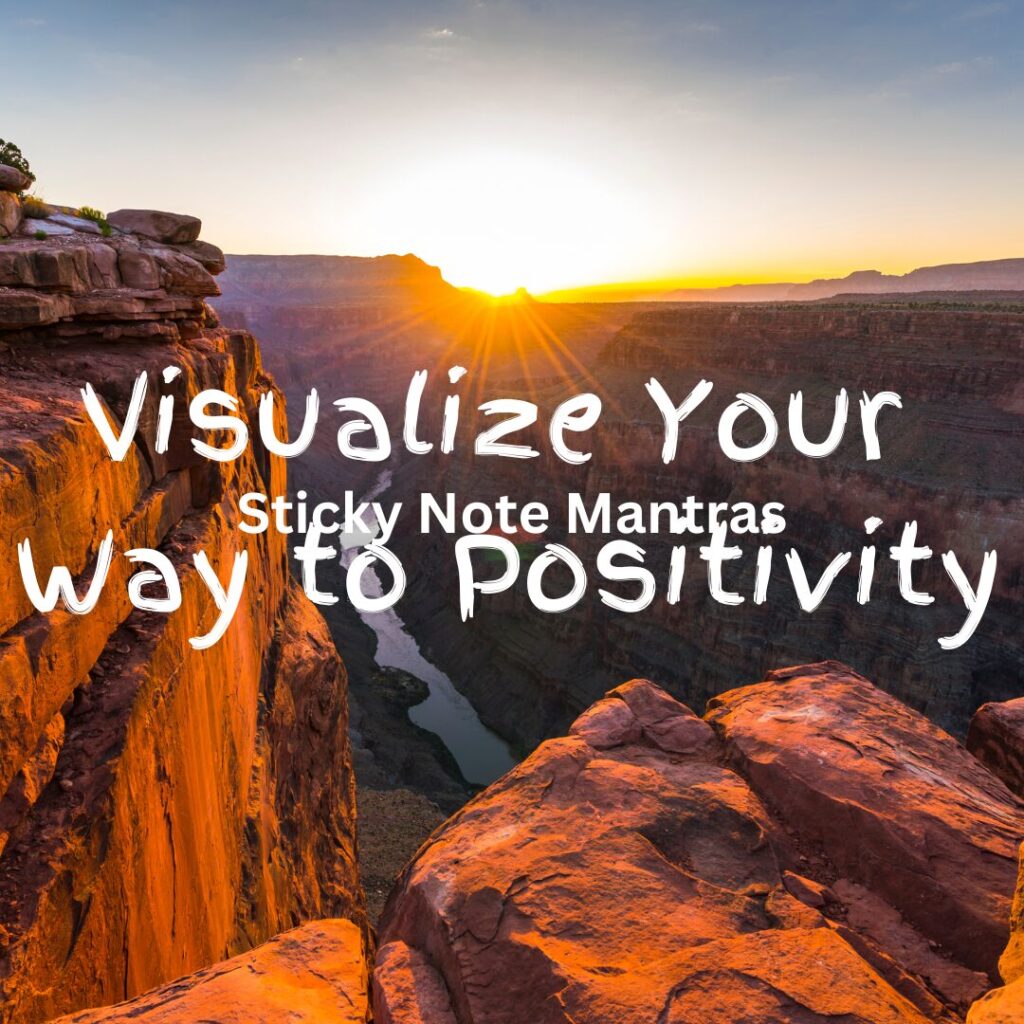I recently listened to The Mind Body Green Podcast hosted by Jason Wachob. I have over a 45-minute commute to and from work, so I have plenty of time to listen. This podcast talked about using functional imagery to lose weight. The guest was a Licensed Social Worker who had been working in the therapeutic counseling world for over twenty years, so she was throwing out little nuggets of wisdom all over the place. The overall arching theme was about grounding yourself using your senses and building up those senses through exercises to help with weight loss and various other human challenges. She also talked about utilizing techniques that professional athletes use in everyday life to help with anxiety or other unwanted emotions to support performance at work and in life.
One such nugget was uncannily familiar. As soon as the guest said it, I said, “I have been using that strategy since 1998! Going way back to the nineties! Almost Vintage!
Let me set the stage: It was 1998, and I was fairly recently out of college, just starting a new career, saving, and working overtime to pay for a 10-day Grand Canyon rafting trip. A hiking group I took frequent weekend trips with around the state was in charge of arranging the trip. It was through the local community college I worked for, so I was guaranteed a spot if I could save up the money. I’m sure I bugged many employees with my excitement for several months leading up to the trip.
The trip was everything I could have hoped for. It was beautiful, challenging, inspiring, and gave me my first powerful experience of being awe-struck. So many adventurous and wild moments stand out, but one in particular turned into a powerful visual mantra for me. Towards the end of the trip, we were floating down a part of the canyon where you could see some of the oldest rock strata. The raft guide described the canyon’s 340-million-year-old marine limestone strata and how, if you could explore the caves, you would find fossilized giant sloth dung from the last Ice Age, which began more than 100,000 years ago.
Looking around at the walls of the canyon, the rusty, muddy color of the Colorado River, and hearing that these rock and sloth fossils were here so many thousands of years ago and the rock millions of years old made me feel really small and insignificant. That feeling of being inconsequential turned out to be a pivotal point in my life. Let me explain.
Having ADHD, undiagnosed ADHD as a female in my experience (and it sounds like most experiences), left me with some pretty hefty baggage. I was almost always anxious; I worried constantly about everything. I was apprehensive that people would find out that I was not intelligent, not competent, and not in league with the people who were my friends and coworkers. Although I was educated, employed, married, financially stable, and healthy, I always felt less than a klutzy, challenged, last-rung-on-the-ladder person, an imposter trying really hard to appear like I had it all together. On the outside, I seemed pretty successful, but on the inside, I felt like a total failure.
So, with that framework of how I felt about myself and being in a place that was possibly millions of years old, I felt small—a tiny, infinitesimal speck in the timeline of the world. I came to the realization that my time on earth is very short and I didn’t want to live in fear anymore. I thought, “Well shit if I’m just this blip, a blink of an eye in time, all of that crap that I worry about is not really all that important”. I realized my fears didn’t matter in the big scheme of things, and that was fucking freeing! That was one of my first a-ha moments in my life. I felt this incredible weight come off my chest, and it was so good I made a pact with myself that I would not let this moment recede into a great vacation memory but instead as a pivotal life-changing moment. I didn’t have a name for it yet, but it was the start of my building a healthy mind management style for myself. In research studies, this phenomenon is referred to as the small effect. The small effect of being awed and humbled has been linked with many good things! It increases our well-being, and optimism about the future. Visualization calms anxiety, declutters the mind, boosts motivation, and improves mood. Visualizing yourself in an inspiring place facilitates the relaxation response, which is the opposite of the flight, fight, and freeze response. It’s perfect for calming you down when the negative thoughts are closing in, and your system is about to wig out. It is also likened to mindfulness, which is an essential mind management technique, helping us feel grounded and centered.The field of mental health highlights mindfulness as a key component to wellbeing. The practice of ‘being present’ is a most worthwhile endeavor to include in our daily lives.
I am certainly not the first to feel this awe when immersed in nature. Ralph Waldo Emerson and Henry David Thoreau also looked to nature to invoke their own sense of awe. Being amongst the vastness of nature and something much older, wiser, and more powerful than us strikes a deep primal chord in us, maybe because we are so disconnected from it now. When practicing visualization, involve all your senses while visualizing, and it will be more effective. So, after you have a calming place in mind, like the beach, a lake, the forest, a bench in the park, etc., make sure to think about details. Instead of just “the beach,” try something like this: You are sitting at a beach. There’s no one else around. You can smell the salty air, feel the sun on your skin and the warm sand between your toes, hear the crashing waves and seagulls cry, taste the cold drink you brought with you, and see a few tiny boats in the distance. It’s also more effective if it’s a place you have been to…..so get out there, and reconnect with nature. Ignite your sense of awe and feel the small effect! Create your own visual mantras from those places in nature that inspire you!


